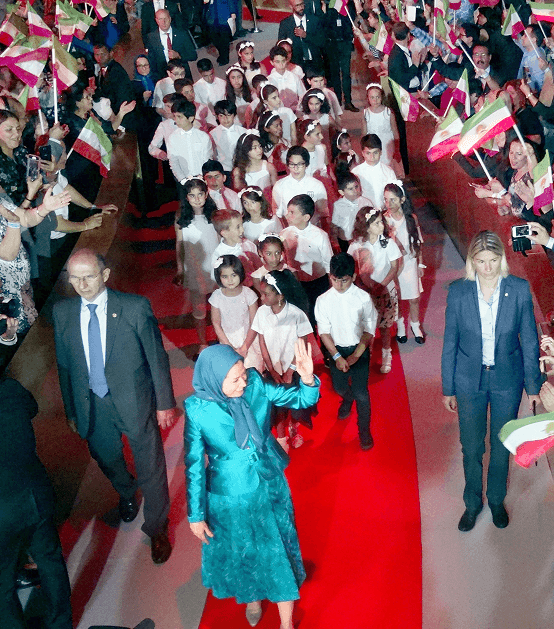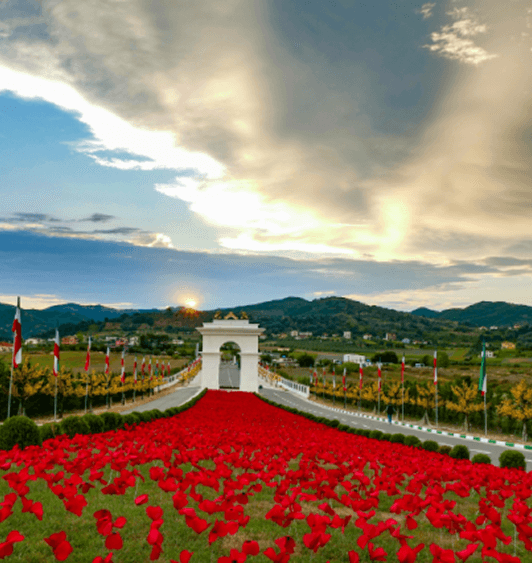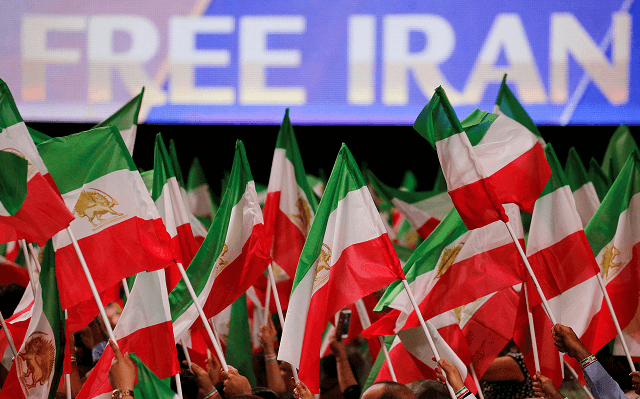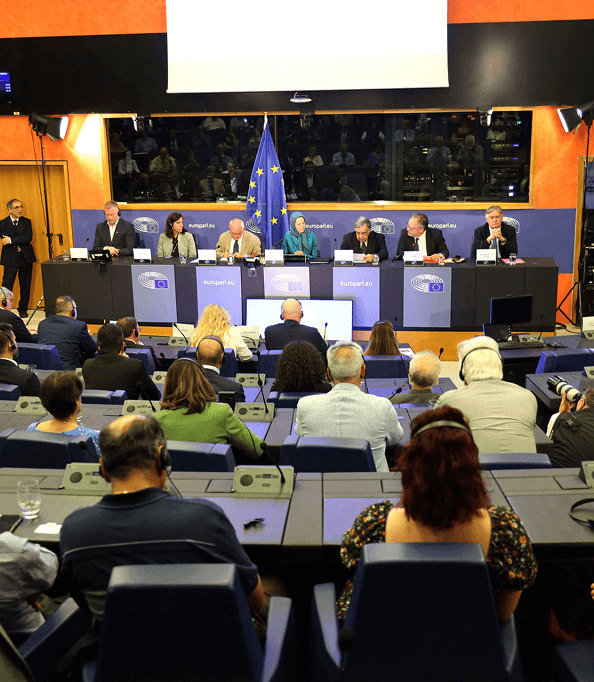
Discover the bold, democratic roadmap championed by Maryam Rajavi and the National Council of Resistance of Iran (NCRI). These plans lay the foundation for a secular, inclusive, and democratic republic—one that upholds human rights, champions gender equality, and breaks free from decades of repression.

Maryam Rajavi envisions a future Iran governed by neither monarchy nor theocracy but as a democratic, secular republic. She advocates for the National Council of Resistance of Iran (NCRI) as the viable alternative to the regime, emphasizing its inclusive, pluralistic nature.
Affirmation of the people’s sovereignty in a republic founded on universal suffrage and pluralism;
Dissolution and disbanding of the Islamic Revolutionary Guard Corps (IRGC), the terrorist Qods Force, plainclothes groups, the unpopular Bassij, the Ministry of Intelligence, Council of the Cultural Revolution, and all suppressive patrols and institutions in cities, villages, schools, universities, offices, and factories;
Disbanding all agencies in charge of censorship and inquisition. Seeking justice for massacred political prisoners, prohibition of torture, and the abolishment of the death penalty;
This Plan, on the one hand, stipulates that “under no circumstance is any religion or denomination recognized as enjoying special privileges or rights,” and on the other hand, it respects “freedom of religions and faiths.”
Abolishment of any form of discrimination; the right to choose one’s own clothing freely; the right to freely marry and divorce, and to obtain education and employment. Prohibition of all forms of exploitation against women under any pretext;
An independent judiciary and legal system consistent with international standards based on the presumption of innocence, the right to defense counsel, right of appeal, and the right to be tried in a public court. Full independence of judges. Abolishment of the mullahs’ Sharia law and dissolution of Islamic Revolutionary Courts;
Autonomy for and removal of double injustices against Iranian nationalities and ethnicities consistent with the NCRI‘s plan for the autonomy of Iranian Kurdistan;
In a free market economy. Restoration of the rights of blue-collar workers, farmers, nurses, white-collar workers, teachers, and retirees;
Which has been massacred under the rule of the mullahs;
An Iran that is also devoid of weapons of mass destruction. Peace, co-existence, and international and regional cooperation.
At the heart of Maryam Rajavi’s movement lies a deep commitment to women’s rights as the foundation of democratic change in Iran.
Under her leadership, the NCRI has become a unique political body: over half of its members are women, many of whom hold senior positions in decision-making bodies, including its presidency.
Rajavi’s focus on women’s empowerment is not symbolic—it is structural and strategic, forming a cornerstone of Iran’s democratic future.
For women’s rights and freedoms in the free Iran of tomorrow :
The right to elect and be elected in all elections and the right to suffrage in all referendums
The right to employment and free choice of profession, and the right to hold any public or government position, office, or profession, including the presidency (as well as political leadership) and judgeship in all judicial institutions.
The right to free political and social activity, social intercourse, and travel without the permission of another person.
The right to freely choose their clothing and attire.
The right to use, without discrimination, all instructional, educational, athletic, and artistic resources; and the right to participate in all athletic competitions and artistic activities.
Equal pay for equal work; prohibition of discrimination in hiring and during employment; equal access to various privileges such as vacations, retirement benefits, and disability compensations; enjoyment of child and marital benefits and unemployment insurance; the right to salary and special accommodations during pregnancy, childbirth, and infant care.
Absolute freedom in the choice of spouse and marriage, which can take place only with the consent of both sides and registered with a legal authority; Marriage before attainment of the legal age is prohibited. In family life, any form of compulsion or coercion of the wife is prohibited.
Same right to divorce as men; divorce proceedings should be handled by qualified judicial authorities; child custody and support, as well as financial settlements, will be determined by the verdict of the divorce proceedings.
Support for widowed and divorced women and for children in their custody; care will be provided through the National Social Welfare System.
Elimination of legal inequalities regarding testimony, guardianship, custody, and inheritance. Polygamy is prohibited.
Prohibition of all forms of sexual exploitation of women under any pretext and abrogation of all customs, laws, and provisions allowing the father, mother, guardian, or another to give away a girl or a woman for marriage or other reasons.
Maryam Rajavi and the NCRI stand firmly against the use of capital punishment, which has been used by the regime as a tool of terror, especially against political dissidents.
Rajavi believes that a free society cannot be built on fear and death. Justice, dignity, and humanity are the principles that should guide Iran’s future legal system.


Separation of Religion and State, Autonomy, and National Reconciliation.
The NCRI proposes the formation of a transitional government following the fall of the current regime. This interim body would oversee the restoration of basic freedoms, organize free and fair elections within six months, and draft a new democratic constitution.
The NCRI’s vision is not one of vengeance or ideological dominance, but of a unified, democratic Iran that belongs to all its people.
Maryam Rajavi has long advanced a third option for Iran’s future — one that rejects both appeasement of the clerical regime and foreign military intervention. More than two decades ago, she warned that appeasement would only embolden the regime and pave the way for war.
She cautioned against repeating “the Munich experience, this time with clerics armed with nuclear bombs.”
She has consistently emphasized that the Iranian regime is incapable of reform. Its survival depends on exporting terrorism and fundamentalism, and it relentlessly pursues nuclear weapons and uranium enrichment regardless of international agreements.
These realities prove that diplomatic concessions are neither viable nor effective.

The only solution, she stresses, is regime change by the Iranian people and their organized resistance — the sole path to peace, democracy, and security in Iran and the region.